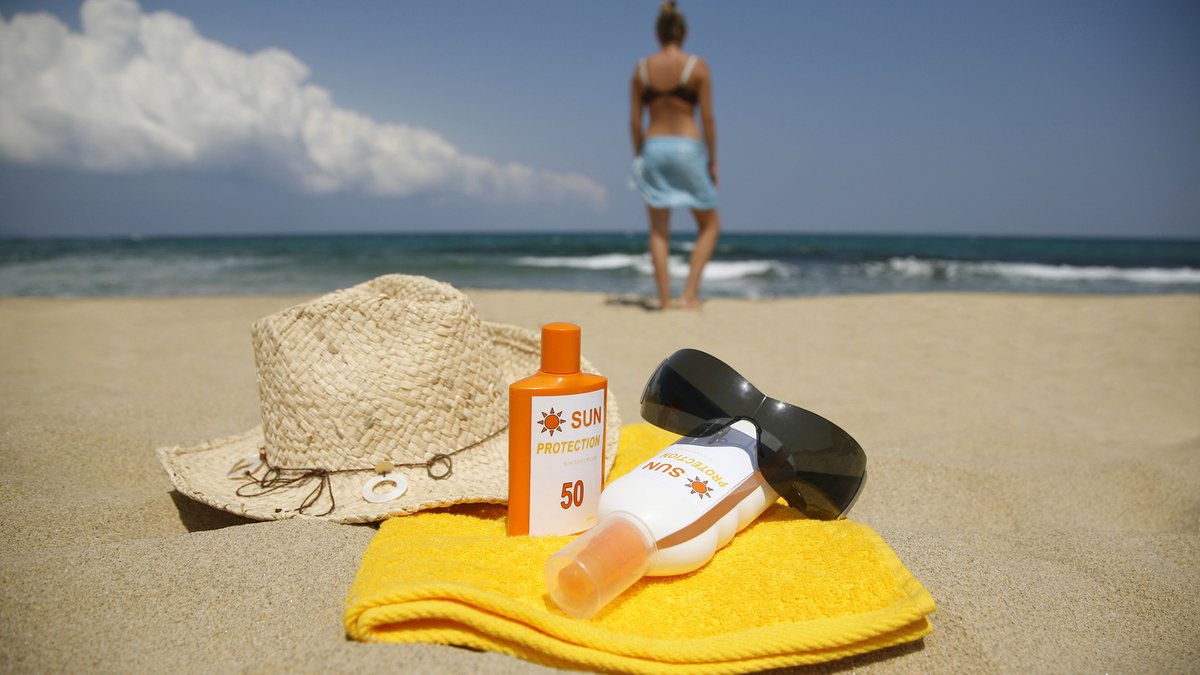Summer Skin Science
Hosting the touring exhibition Skin: Living Armor, Evolving Identity gave the Science Museum an opportunity to partner with Dermatology Associates of Virginia to share important information about preventing skin cancer. Here are some tips from their experts to help you stay safe as you soak in more fun and less sun.
It’s finally summer, which means embracing the warm weather outside. Many of the quintessential summer activities involve sun exposure, but it’s not just the all-day beach trips that could cause trouble. Every hike, ball game, bike ride and dog walk could lead to damage. With skin cancer diagnoses on the rise, it’s important to identify ways to protect yourself and your loved ones.
You’ve heard it before but we’ll say it again because it’s that important: wear sunscreen. Sunscreen needs to be applied about 30 minutes before going outside, and make sure you’re putting on enough! An easy way to measure the appropriate amount of sunscreen for your whole body is to fill up a shot glass.

Image credit: Getty Images
Any kind of sunscreen is better than none, but it’s best to look for one labeled “Broad Spectrum.” Choose SPF 15 for normal everyday activity, and SPF 30 or higher for intense outdoor exposure like the pool or beach. Apply at least every two hours and immediately after swimming or heavy sweating.
Another way to protect yourself from sun exposure is to cover up! A wide-brimmed hat is a common go-to for people to make sure their heads are covered. The Skin Cancer Foundation recommends a brim measuring 3 inches or greater to ensure coverage for areas commonly missed with sunscreen, like the tops of the ears and back of the neck.
Don’t forget other parts of your body, too. Protect your eyes by wearing UV-blocking sunglasses. Covering your torso with a long-sleeved shirt can also help. Many companies create clothing designed to repel UV rays to ensure optimum protection.
Soaking up the Sun’s rays increases everyone’s risk for skin cancer. But there are other health considerations, too. Extensive sunlight exposure can decrease the body’s supply of folate, an essential compound for building DNA. Lighter skin is more susceptible to folate depletion.
Your skin may temporarily make more melanin after UV exposure—causing a tan or darkening freckles—but this pigment boost doesn’t offer substantial protection from the Sun.
The key to prevention is ultimately diligence as well as early detection. Performing routine self-checks will help you know if any new spots come up or existing spots change. If you notice changes, contact your dermatologist for a visit.
The Skin Cancer Foundation has tips on how to perform a monthly self-exam at home. Just as you’d add a pool visit with friends or an outdoor music festival to your calendar, make sure you schedule those skin checks to keep yourself healthy and happy this summer!


